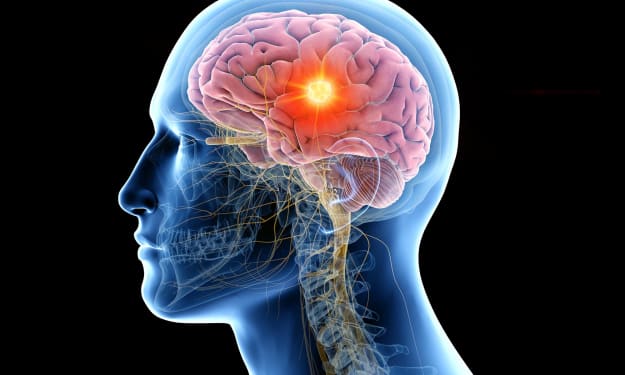Conquering Depression: Therapeutic Approaches for a Brighter Future
Conquering Depression: Overcome Depression and Embrace a Hopeful Tomorrow

Depression, a complex mental health condition, affects millions of individuals worldwide. Its impact can be overwhelming, leading to feelings of sadness, hopelessness, and a loss of interest in life. However, there is hope for those struggling with depression. Through a variety of therapeutic approaches, individuals can find effective ways to manage and conquer depression, leading to a brighter and more fulfilling future.
In this blog, we will explore some of the most effective therapeutic methods for treating depression, providing valuable insights into Individual therapy and support for those seeking a path toward recovery.
Learning About The Depression
Depression is more than just feeling sad; it is a debilitating mental health disorder that affects a person's emotional, physical, and cognitive well-being. Key points to consider include:
- Persistent sorrow, interest loss, changes in eating and sleep habits, and feelings of worthlessness are all typical signs of depression. You can consult Psychologist Venice FL to treat not only Depression Treatment but they offer Anxiety Treatment as well.
- Clinical depression is different from normal sadness and may require professional intervention.
- Depression is a prevalent mental health issue that can affect individuals of all ages and backgrounds.
The Role of Therapy in Treating Depression
Therapy is a crucial aspect of depression treatment, offering individuals a safe and supportive environment to explore their emotions and challenges. Some important aspects to consider include:
- Therapy at Psychology Sarasota FL provides a space to address underlying issues contributing to depression, such as past traumas or unresolved conflicts.
- Different therapeutic approaches cater to individual needs and preferences, ensuring personalized care.
- Seeking professional help from a psychologist Sarasota FL is essential, especially for severe cases of depression, as therapists are trained to provide appropriate guidance and support.
Cognitive-Behavioral Therapy (CBT)
Cognitive-Behavioral Therapy (CBT) is one of the most widely used and effective therapeutic approaches for treating depression and is offered by Psychology services in Sarasota and Venice FL at Davenport Psychology. It focuses on identifying and challenging negative thought patterns that contribute to depressive feelings by doing some psychological testing.
Key elements of CBT include:
- Recognizing negative thought patterns: CBT helps individuals become aware of automatic negative thoughts that fuel depression.
- Restructuring thoughts: Therapists work with clients to replace negative thoughts with more realistic and positive ones.
- Behavioral activation: CBT encourages individuals to engage in activities that bring pleasure and fulfillment, combating the lethargy often associated with depression.
Real-life success stories of individuals who have benefited from CBT can inspire hope in those seeking help for their depression.
Mindfulness-Based Cognitive Therapy (MBCT)
MBCT combines elements of CBT with mindfulness practices to help individuals manage and prevent depression relapse. Some key aspects of MBCT include:
- Mindfulness exercises: MBCT incorporates meditation and mindfulness practices to cultivate present-moment awareness.
- Breaking the cycle of rumination: By learning to observe thoughts without judgment, individuals can disrupt the negative thought patterns that lead to depression.
- Building resilience: MBCT equips individuals with coping strategies to handle depressive thoughts and emotions more effectively.
Research-backed evidence supports the effectiveness of MBCT in reducing the risk of depression recurrence.
Interpersonal Therapy (IPT)
Interpersonal Therapy (IPT) focuses on the impact of interpersonal relationships on depression and emotional well-being. Key components of IPT include:
- Improving communication skills: IPT helps individuals enhance their communication and problem-solving abilities in relationships.
- Addressing unresolved issues: Therapy sessions may explore unresolved conflicts or losses that contribute to depression.
- Strengthening social support: IPT encourages individuals to build and maintain healthy relationships, fostering emotional support.
IPT can be particularly beneficial for individuals whose depression is closely linked to relationship dynamics.
Acceptance and Commitment Therapy
ACT is a mindfulness therapy that gives importance to accepting difficult emotions and committing to value-based actions. The core principles of ACT include:
- Embracing acceptance: ACT teaches individuals to embrace their emotions, even if they are uncomfortable, rather than avoiding or suppressing them.
- Mindfulness practices: ACT incorporates mindfulness techniques to help individuals stay present and avoid getting caught up in negative thoughts.
- Commitment to values: ACT encourages individuals to identify their values and commit to actions that align with those values, promoting a sense of purpose.
ACT is empowering for those looking to live a more meaningful life despite the challenges of depression.
Medication and Therapy: Combined Approaches
For some individuals with severe depression, a combination of therapy and medication may be the most effective treatment approach. Key points to consider include:
- Antidepressant medication can help stabilize mood and alleviate severe symptoms of depression.
- Therapy and medication can work synergistically, addressing both the biological and psychological aspects of depression.
- Collaborative efforts between therapists and healthcare providers ensure comprehensive care and ongoing evaluation of treatment effectiveness.
Lifestyle Changes for Depression Management
In addition to therapy, lifestyle changes play a crucial role in managing depression. Some lifestyle adjustments include:
- Healthy diet: Consuming a balanced diet with essential nutrients can positively impact mood and energy levels.
- Regular physical activity: Engaging in exercise releases endorphins, the body's natural mood enhancers.
- Quality sleep: Prioritizing adequate and consistent sleep is vital for emotional well-being.
- Stress management: Developing healthy coping strategies to manage stress can reduce the risk of depression.
The Power of Support Systems
A strong support system is instrumental in the journey to conquer depression. Consider the following benefits:
- Friends and family can offer emotional support and understanding during difficult times.
- Joining support groups or seeking online communities allows individuals to connect with others who share similar experiences.
- Sharing experiences and coping strategies can reduce feelings of isolation and foster a sense of belonging.
Art and Music Therapy
Creative expression through art and music can be therapeutic for individuals struggling with depression. Some benefits of art and music therapy include:
- Creative outlets offer a non-verbal means of expressing emotions, which can be especially helpful for those who find it challenging to talk about their feelings.
- Engaging in artistic activities can provide a sense of accomplishment and satisfaction, boosting self-esteem.
- Art and music therapy can foster emotional healing and promote relaxation.
Seeking Professional Help: Breaking the Stigma
Acknowledging the need for professional help at Psychology Venice FL is a vital step toward conquering depression. It is essential to:
- Recognize that seeking therapy is a sign of strength, not weakness, and should not be stigmatized.
- Promote a positive view of mental health and well-being, encouraging open discussions about depression.
- Encourage others to prioritize their mental health and seek professional help without shame or fear.
Conclusion
Conquering depression requires resilience, determination, and support, but it is possible with the right therapeutic approaches. Whether through Cognitive-Behavioral Therapy (CBT), Mindfulness-Based Cognitive Therapy (MBCT), Interpersonal Therapy (IPT), or Acceptance and Commitment Therapy (ACT), individuals can find effective ways to manage depression and work toward a brighter future.
By incorporating lifestyle changes, building strong support systems, and exploring creative outlets like art and music therapy, the journey to recovery becomes more fulfilling. Seeking professional help should be embraced, not shunned, as it leads to valuable guidance and support on the path to conquering depression and embracing a life of emotional well-being and hope. Remember, you are not alone, and there is a brighter future waiting for you beyond depression.
About the Creator
AMRYTT MEDIA
We are Performance Driven Digital Marketing Agency.






Comments
There are no comments for this story
Be the first to respond and start the conversation.